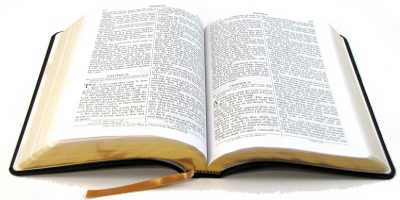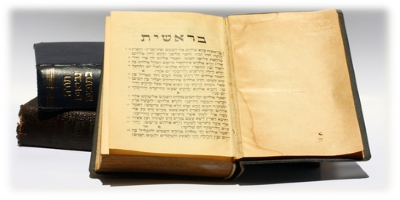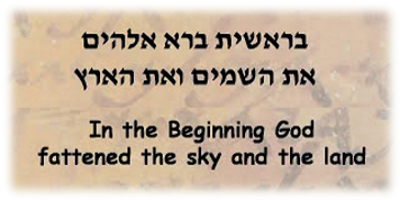I’m sure that many of my readers are aware of my constant mentioning of parallels in the Hebrew Bible. These parallels are very important as they help us to define Hebrew words such as this example from Psalm 102:10 (9 in Christian Bibles);
For I have eaten ashes like bread, and mingled my drink with weeping (KJV)
In this verse, the word “ashes” is paralleled with “weeping” and “bread” is paralleled with “drink.” The Hebrew word for “drink” is שקוי (shiquwiy, or shiquviy if you believe the letter vav had a “v” sound), which Strong’s Dictionary identifies as #8249. According to Strong’s, this word only appears once, here in Psalm 102. But what kind of “drink” is this? Is it alcoholic, juice, water or another kind of beverage? The answer is, we just don’t know.
The reason that we do not know the specific meaning of this word is that while the Hebrew language was used as the Israelites everyday language, this ended in the second century A.D. At which time the Israelites were taken out of the land of Israel and placed in other lands where their everyday language became the language of this new strange land. Hebrew continued to be used from a religious perspective, but it was no longer a “living” language and the meaning of many Hebrew words was lost. In fact, the meanings of many Hebrew words in the Bible are unknown, uncertain or unclear.
This requires Biblical Hebrew scholars to use different methods to uncover the meaning of these words of ambiguous meaning. One of these methods is to examine the context of how a word is used in the text. Another method is to investigate how one word is paralleled with another as these parallels will help in defining the meaning of that word. The more times a word (and its cognates) is used throughout the Bible, including it being used as a parallel with other words, the better the translation will be. However, when it comes to a word that is rarely used in the Bible, especially if it is found only once, such as this word, the translation cannot be very specific. It is because of this that the vague translation of “drink,” due to it being paralleled with “bread,” is used for this word.
In the English language we have many different words for different drinks; refreshment, beverage, soda, spirits, wine, beer, fruit punch, etc. The same is true in Hebrew; shiquwiy, yayin, sove, sheykhar, etc. Some of these, we know what kind of drink, such as yayin being the word for “wine.” But with a word like shiquwiy, the word used in Psalm 102, we don’t have enough information to determine what kind of drink this is.
At this point in my research into this word I went to the Brown-Driver-Briggs Lexicon (BDB) and looked up this word and discovered that the BDB notes that shiquwiy is associated with two different Strong’s numbers; 8249 and 8250. This is helpful because know we have more data to help us determine the meaning of shiquwiy.
Strong’s 8250 is used twice in the Hebrew Bible.
For their mother hath played the harlot: she that conceived them hath done shamefully: for she said, I will go after my lovers, that give me my bread and my water, my wool and my flax, mine oil and my drink. (Hosea 2:5)
It shall be health to thy navel, and marrow to thy bones. (Proverbs 3:8)
Marrow? Interesting. Marrow has been used for ages, kind of like we use butter. Oftentimes it is sucked out of the bones as part of the meal. While marrow is not a liquid like water or wine, it is a thick liquid, a type of sludge about the consistency of warmed butter. The act of sucking out the marrow could be considered “drinking” as, just like drinking a glass of water, the bone, like a cup, is lifted to one's lips to suck out the thick liquid.
Does shiquwiy mean “marrow?” I don’t think so. There is another Hebrew word that means “marrow.”
Job 21:24 His breasts are full of milk, and his bones are moistened with marrow. (KJV)
The Hebrew for “marrow” here is מח (mo’ahh). We can assume that there were not two Hebrew words (mo’ahh and shiquw) for “marrow,” but instead, one word for “marrow” (mo’ahh) and one for a “thick liquid” (shiquwiy), which could include “marrow.”
To provide an example of my earlier comment that many Hebrew words are uncertain, look at the first part of this verse; His breasts are full of milk. This phrase is translated different ways in different translations. In the American Standard Version (ASV) it is translated as “His pails are full of milk” and the Revised Standard Version (RSV) has “His body full of fat.” In this phrase, the Hebrew word עטין (atiyn) is translated as; breast, pail and body. Clearly, the meaning of this word is not explicitly known and the translations are educated guesses.
With all of this said, while I was working on this word study, it occurred to me, if the Hebrews had not used parallels so frequently in their writings, we would not have this tool to assist us in determining the meaning of Hebrew words. In fact, I could easily say, that without them, we probably would not even have an intelligible Bible at all, hence, the title of this article – "The miracle of parallels."
Like what you’re discovering? Continue the journey from Bible reader to translator.
|






